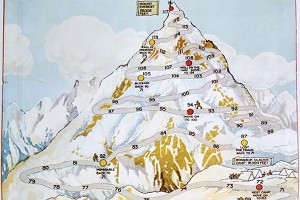
Expedition kayaker Darren Clarkson-King and his wife Andrea were in Nepal when the earthquake struck on 25 April. The couple, who run guiding firm Pure Land Expeditions, were in an ideal position to help the remote mountain communities where their staff and local agents are based. So hearing how bad things were, and with no background in international disaster relief, that's just what they did. They are still at it, buying and ferrying badly needed supplies to devastated villages, some of which have yet to see relief from the Nepal Government or large NGOs. Via Facebook we caught them in a rare window of downtime, to find out how it's been going.
'When the quake hit we were in Pokhara en route to Begnas' says Darren.
'We felt a small quake – everyone thought a 5 – but where we were there was not much damage at all. In fact it took some time for news of it to filter through to us. Then word started to come from Kathmandu and Gorkha. After the initial shock people began assessing, but Kathmandu seemed to be getting all the media attention. News of the effects in more remote areas took three or more days to reach us.'
Centred in the Gorkha district, the earthquake was the most powerful to hit Nepal since the 1930s. The devastation was immense, both in towns and the countryside, where entire villages were flattened. Well over 7000 people are known to have died, and it's thought the final count could be as much as 10,000. Thousands more are seriously injured and hundreds of thousands have been made homeless. The relief effort has still to reach some of the most inaccessible mountain areas.
Most of us will not have been closer than a television screen to natural disasters of this scale, and we'll never contribute more than cash to the relief efforts. It is rare for individuals to find themselves on the ground, in a position to offer meaningful concrete help. But friends and contacts were feeding real time information to Andrea and Darren about the magnitude of the disaster up in the hills far from the media eye, and with their network of staff and local agents already in place they had the makings of an ad hoc aid project all their own.
'Once communication links opened up we spoke with our friends and colleagues on the ground' says Darren.
'We were sat at breakfast, and over SMS and Facebook messenger feeds long term friends, river guides and businesses we've worked with were pleading for help. How could we ever say no?'
'That's when our grassroots project started.'
Friends in northern India were loading jeeps with urgently needed food and shelter, and driving through the night to reach remote areas over the border. Darren and Andrea began loading a vehicle too, to hook up with them for the journey up to stricken rural communities. They beat official aid by days.
'We rallied supplies with guides to Gorkha, and brought sanitation supplies, drinking water and medications to Lalitpur. We then reacted to an emergency call in Sindupalchowk, from an old friend who I worked for 15 years ago. He had done local surveys of the damage, and found something like 95% of the houses were gone, whole villages, everything.'
With nowhere to stay survivors were sleeping outdoors, and needed shelter as much as food.
'We ferried supplies with hired jeeps and vans' says Darren.
'We had multi agency links and guides who collected the stuff. We spread out in the villages on jeep roads and short treks, and carried out surveys of those affected to get a handle on what was needed.'
'We worked a system supplying each household with one month's food, plus shelter – tarps and blankets. But obviously it's still not enough' says Darren.
Away from the roads they've established a wider network of people carrying supplies, walking four days or more in some cases.
'Once our initial supplies had gone we surveyed further villages, sent friends to the damaged hospitals and restocked them. We then re-ordered supplies using the same system for each village, and kept things moving through the nights, driving loads ourselves.'
For the first week after the quake they were managing just three hours sleep a night.
'Once in Sukute area we were awoken by a fire in the local bazaar' says Darren. 'The electricity had suddenly come back on and the last remaining houses has started to catch fire from damaged electrics. Raft guiding friends rallied and we put the fire out. There wasn't enough water so we used banana leaves. They are sappy – it worked surprisingly well.'
It is night time in Nepal when we get in touch on Facebook. So how are they holding up?
'We are slowly get used to this situation' says Darren, 'and we're currently in Begnas resting up while teams change over. We spent a night in Kathmandu but it was like a ghost town, and it was hard to sleep with the aftershocks still coming. I hope we'll rest better in Begnas, but someone is upstairs moving furniture right now.'
[At this point a power cut in Begnas cuts us off, and we resume the next morning, Ed.]
'We are still doing hands-on work, and though we've handed our data and 'authority' over to the Canadian army now we still know for a fact that aid is not making it as far into the mountains as it's needed. Andrea is liaising and sorting a lot of this; we're still sending trucks up because people on the ground up there still need this support network.'
Though a huge international relief effort has now been mobilised, Andrea and Darren think it has yet to find its feet:
'We know of SAR teams and army units that were stuck in Kathmandu for four days on arrival, tied up in politics. As you can imagine Nepal Government seem to have spent lots of time hindering things. We know the Canadian army here have long term redevelopment goals, but this will take time. There still seems to be little coordination, and though outside agencies are getting a handle on things, it's not happening quickly.'
Sindhupalchowk district close to the Tibet border is a sensitive area, and the Canadian army can't get in.
'The Bhote area up there is one of the places we're concentrating on' says Darren. 'It is a special place for me; Balephi was the first Nepalese river I ever paddled, so it is high on our list.'
'People up there are still in shock. Whole lives have been destroyed and there are many fatalities. They are living next to their levelled houses, but people still have hope.'
Food supplies and temporary shelter are still required, but with the monsoon on its way materials for rebuilding are becoming a priority too. Tarps will soon be insufficient.
'No one is sleeping inside at the moment' explains Andrea.
'People are mostly homeless and all terrified of the continuing aftershocks, some of which reach 5 and 6 on the Richter scale. Young, elderly and infirm are already suffering with chest infections and other respiratory illness due to sleeping outside every night.'
'Alongside bringing in more basic food, the next big priority is roofing and building supplies. We need to get these materials up to the less accessible villagers before the rains come. Monsoon closes these remote villages off every year anyway, and this year we've got to get as much up there as we can before the window closes.'
An improvised effort it may be, but their grassroots project has received a staggering response from overseas, with about £20,000 raised so far thanks in large part to social media. But the need is still great. With one month's food for one person costing £16, and a house rebuild £200, they could still use every penny they can get hold of.
- Anyone who'd like to chip in can donate via Paypal, to info@purelandexpeditions.com (tag the transfer "quake").
- REVIEW: Mammut Trion 28 pack 29 Apr
- REVIEW: Trekmates Ankle Gaiters 23 Apr
- INTERVIEW: Exmoor Coast Traverse - England's Best Kept Mountaineering Secret 10 Apr
- REVIEW: Rab Muon 50L Pack 9 Apr
- REVIEW: Boreal Saurus 2.0 22 Mar
- REVIEW: The Cairngorms & North-East Scotland 1 Mar
- REVIEW: Mountain Equipment Switch Pro Hooded Jacket and Switch Trousers 19 Feb
- Classic Winter - East Ridge of Beinn a' Chaorainn 12 Feb
- REVIEW: Salewa Ortles Ascent Mid GTX Boots 18 Jan
- REVIEW: Patagonia Super Free Alpine Jacket 7 Jan



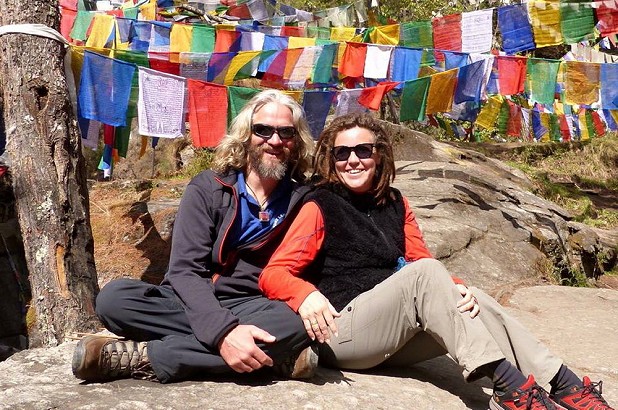
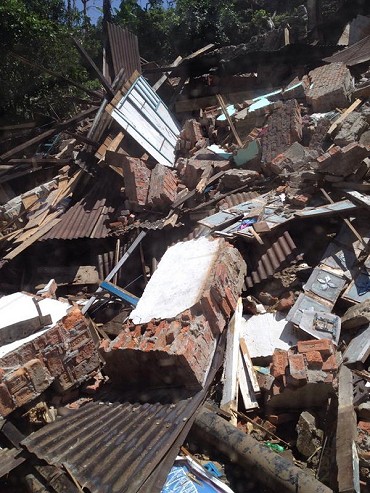
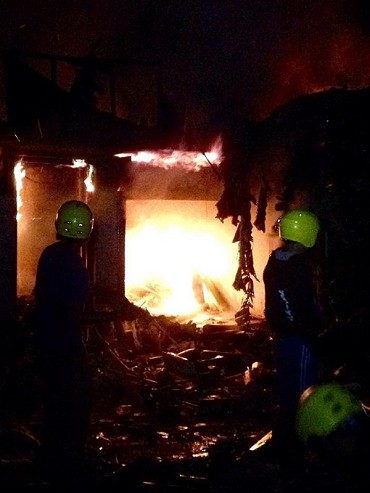
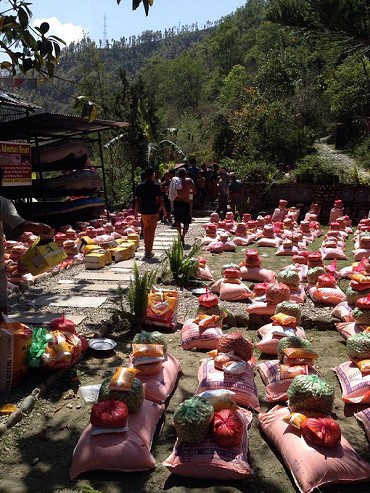
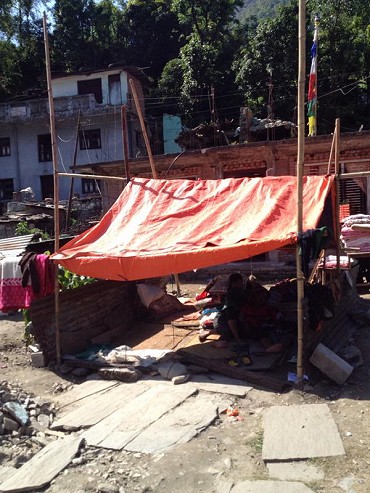
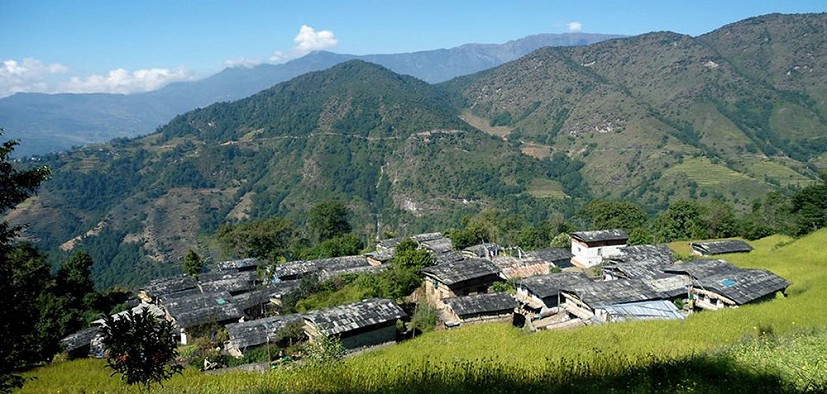
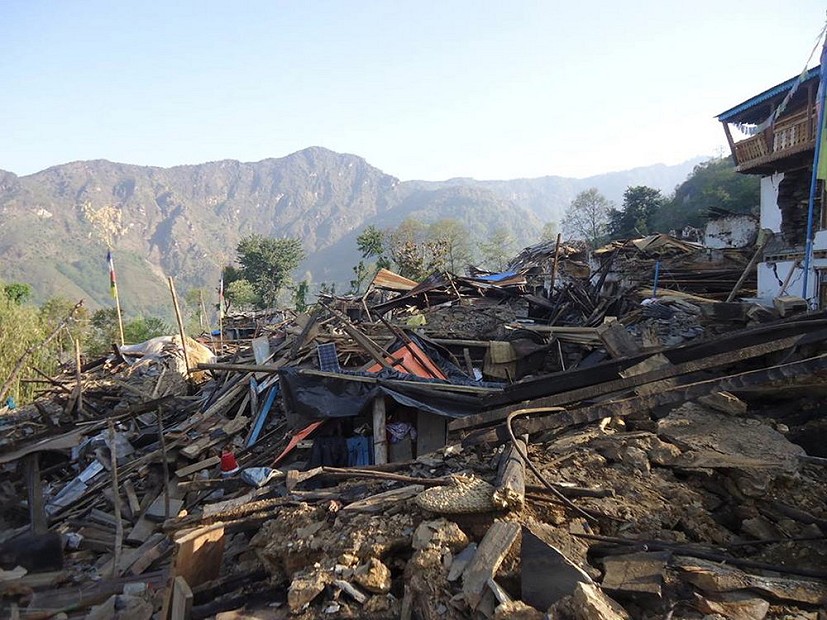
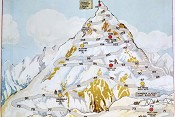
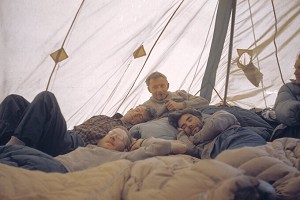
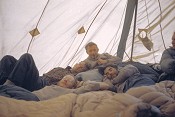
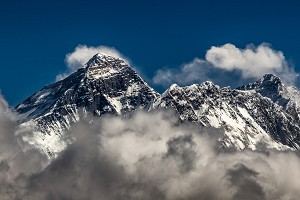
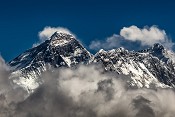


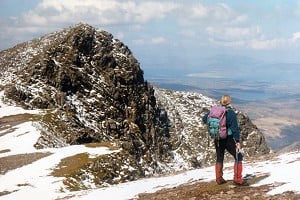
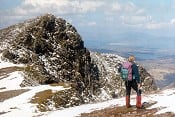
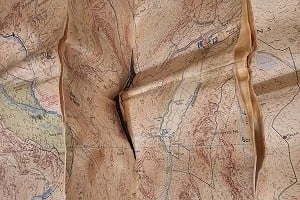
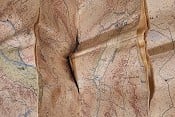
Comments